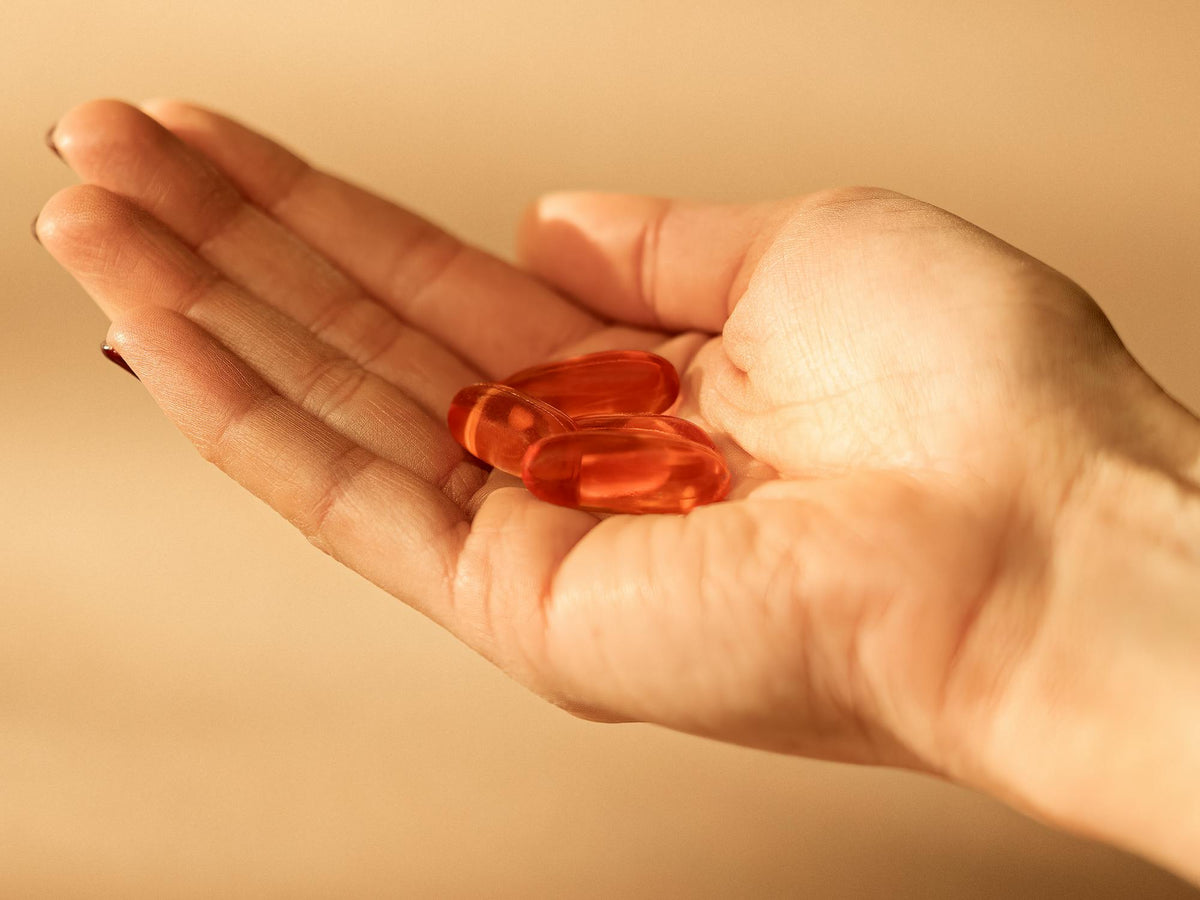
The Top Omega-3 Sources for Vegans (Foods & Supplements)
|
|
You've committed to a plant-based lifestyle, but you’ve likely heard conflicting advice about omega-3s. Some say you can't get enough EPA and DHA without fish oil, while others claim plant sources are sufficient.
Many vegans feel frustrated trying to navigate supplement labels, wondering if flaxseeds and walnuts are sufficient or if they need to invest in plant-based sources of omega-3 supplements.
This guide breaks down exactly which vegan omega-3 sources provide EPA and DHA in optimal ratios, how much you actually need, and which forms offer the best absorption.
Omega-3 fatty acids are essential fats that play crucial roles in overall health, but not all omega-3s are the same. The three main types are ALA (alpha-linolenic acid), EPA (eicosapentaenoic acid), and DHA (docosahexaenoic acid).
ALA is found in plant sources such as flaxseed, chia seeds, hemp seeds, and walnuts. It is primarily associated with heart health, supporting cardiovascular function and healthy cholesterol levels.
EPA and DHA are mostly found in marine sources like fish and algae. EPA is key for reducing inflammation and supporting mood regulation, while DHA is critical for brain and eye health, including cognitive function and visual development.
The challenge for vegans is that the body can only convert ALA into EPA and DHA (the forms directly usable by the body) —at a very low rate, often less than 10% for EPA and 5% or less for DHA in most individuals.
This means relying on plant-based ALA alone may not provide sufficient levels of EPA and DHA, making direct sources like algae-based supplements essential for vegans. Ensuring adequate intake of EPA and DHA supports heart, brain, and eye health more effectively than ALA alone.
Plant foods such as flaxseeds, chia seeds, hemp seeds, and walnuts are rich in ALA. While beneficial, relying solely on these sources has limitations, as conversion is very inefficient for most people.
Genetic factors also play a key role. Variations in the FADS gene (fatty acid desaturase) affect how effectively ALA is converted into EPA and DHA. Some people naturally have lower conversion rates, meaning even a diet rich in ALA may not provide adequate long-chain omega-3s and could lead to omega-3 deficiency.
Other factors also influence conversion efficiency:
Age: Conversion tends to decrease with age.
Gender: Women generally convert ALA to DHA more efficiently than men, partly due to estrogen.
Overall diet: High intake of omega-6 fatty acids (from vegetable oils, processed foods) can compete with omega-3 metabolism, further reducing conversion.
Given these genetic and lifestyle factors, plant sources alone often fall short, making direct sources of EPA and DHA, such as algae-based supplements, essential for vegans and vegetarians who want to ensure optimal omega-3 intake.
| Source | Omega-3 Content | Serving Size |
|---|---|---|
| Flaxseeds (ground) | 6,388 mg | 2 tbsp (14 g) |
| Chia seeds | 4,915 mg | 2 tbsp (28 g) |
| Hemp hearts | 2,600 mg | 3 tbsp (30 g) |
| Walnuts | 2,570 mg | 1 oz (28 g) |
| Perilla seeds | 9,000 mg | 1 tbsp (10 g) |
While most whole plant foods provide ALA, a few algae-based foods contain small amounts of EPA and DHA. Examples include:
Spirulina: A nutrient-dense blue-green algae; contains minimal EPA and DHA.
Although the EPA/DHA levels in these foods are low compared to omega-3 supplementation, including them regularly can contribute modestly to overall intake. Incorporation ideas: add nori to wraps or salads, use wakame in soups, or sprinkle spirulina powder into smoothies.
Organic or sustainably harvested products are generally safer.
Many plant-based products are now fortified with omega-3s, such as:
Yogurt alternatives
Check whether the added omega-3 is ALA or algae-derived DHA/EPA, as this affects bioavailability.
Including both algae-based whole foods and fortified products can help bridge the gap for vegans seeking sufficient EPA and DHA intake.
Fish don’t naturally make omega-3s—they get them from eating algae. By going straight to the source, vegans can access EPA and DHA sustainably, avoiding ocean pollutants and overfishing. Marine algae offers a cleaner, eco-friendly alternative with the same essential fatty acids.
Omega-3s come in different molecular forms. Triglycerides are the natural form found in algae and fish, making them easier for the body to absorb. Ethyl esters are synthetic and less efficiently absorbed. To check which form a supplement uses, read the label carefully and look for “triglyceride” or “TG” rather than “ethyl ester” or “EE.”
EPA + DHA content per serving (aim for 250-500mg each)
Third-party testing for purity and potency
Triglyceride form specification
Sustainable sourcing certifications
Minimal additional ingredients
Momentous Vegan Omega-3 stands out with a market-leading 500mg each of EPA and DHA per serving, sourced from marine algae in the natural triglyceride form for optimal absorption.
Like all Momentous supplements, Vegan Omega-3 is NSF Certified for Sport®. NSF Certification ensures purity and potency, with every batch tested for heavy metals, harmful additives, and label claim accuracy to meet the highest standards.